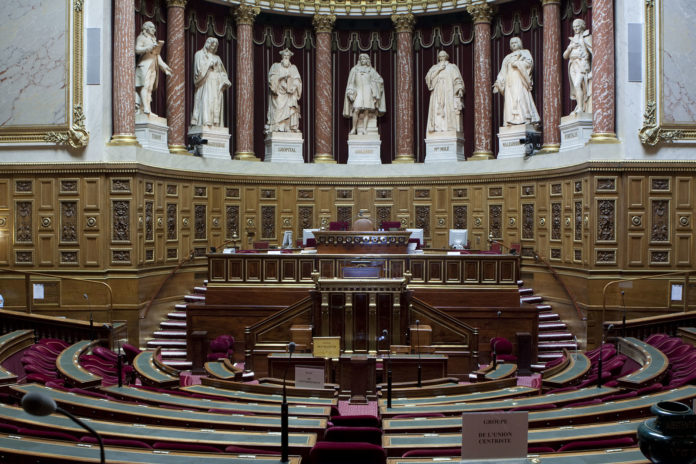French parliamentarians have voted to ban the wearing of the hijab in public for those under 18, to ban burkinis in public pools, and to ban the wearing of the hijab for those accompanying children on school trips.
The votes on Tuesday do not yet mean the bans will become law but they do reflect the majority sentiment of the French upper house.
They came in the context of a bill confirming respect for the “principles of the Republic” with a senatorial majority voting in favour of the “prohibition in the public space of any conspicuous religious sign by minors and of any dress or clothing which would signify an inferiorisation of women over men.”
The votes were contrary to the position of the government and will need to be confirmed by the National Assembly to become law.
One right-wing senator, Bruno Retailleau, said: “Each time we have proposed to toughen this text, especially vis-à-vis the veil and ostentatious signs, the government has backed down.” The veil, according to him, is “sexist,” a “marker of the submission of women,” and “the banner of separatism.”
The senator added: “Stop telling us that the veil is only a piece of cloth while it characterises the claim of the Islamist ideologists to impose on us a counter-society, separate from the national community… The situation is extremely serious. ”
The veil is already banned in French schools. President Emmanuel Macron has said the veil is “not in accordance with French civility” but has said he does not wish “to make a law which prohibits it in the street.”
Subscribe to our newsletter and stay updated on the latest news and updates from around the Muslim world!
Human rights group Amnesty International has said that the new regulations would further pave the way for discriminative policies against the Muslim minority in the country.
“This proposed law would be a serious attack on rights and freedoms in France,” said Amnesty International’s Europe researcher Marco Perolini in a statement.
“Time and again we have seen the French authorities use the vague and ill-defined concept of ‘radicalisation’ or ‘radical Islam’ to justify the imposition of measures without valid grounds, which risks leading to discrimination in its application against Muslims and other minority groups,” Perolini said, adding that “this stigmatisation must end.”
Amnesty said that in its current state, some aspects of the bill raise concerns about the protection of freedom of association and expression, as well as the principle of non-discrimination in France.
“It would allow public authorities to fund only organizations that sign a ‘contract of Republican commitment’ – a vaguely defined concept which is wide open to abuse and threatens the very freedoms of expression and association the French authorities claim to stand for,” said Perolini.
Over the past few months France has closed down the nation’s biggest anti-Islamophobia organisation as well as the country’s biggest Muslim charity. Paris has done this, it says, to fight extremism after a number of deadly “Islamist” attacks on its soil.






















